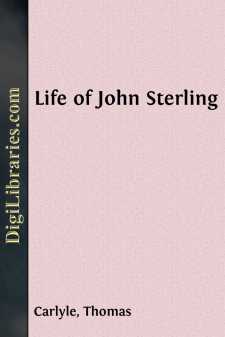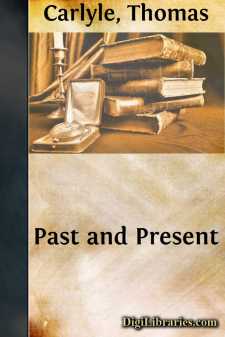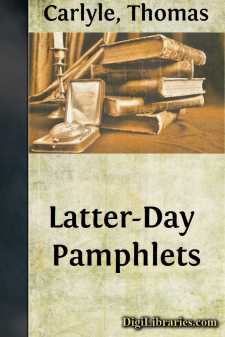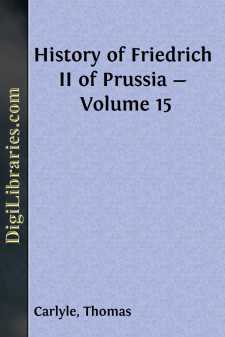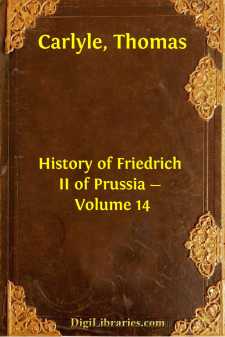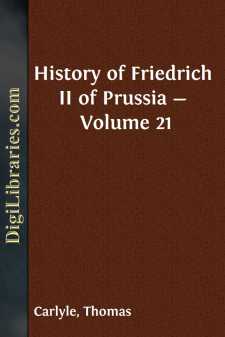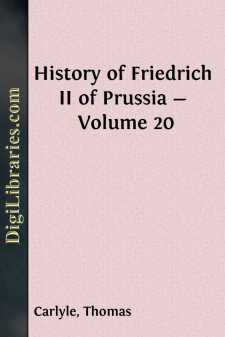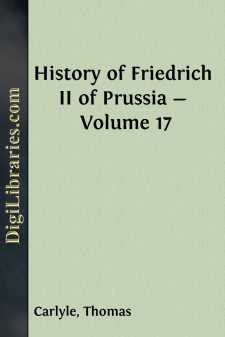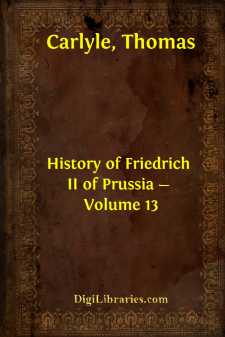Categories
- Antiques & Collectibles 13
- Architecture 36
- Art 48
- Bibles 22
- Biography & Autobiography 813
- Body, Mind & Spirit 141
- Business & Economics 28
- Children's Books 12
- Children's Fiction 9
- Computers 4
- Cooking 94
- Crafts & Hobbies 4
- Drama 346
- Education 46
- Family & Relationships 57
- Fiction 11826
- Games 19
- Gardening 17
- Health & Fitness 34
- History 1377
- House & Home 1
- Humor 147
- Juvenile Fiction 1873
- Juvenile Nonfiction 202
- Language Arts & Disciplines 88
- Law 16
- Literary Collections 686
- Literary Criticism 179
- Mathematics 13
- Medical 41
- Music 40
- Nature 179
- Non-Classifiable 1768
- Performing Arts 7
- Periodicals 1453
- Philosophy 64
- Photography 2
- Poetry 896
- Political Science 203
- Psychology 42
- Reference 154
- Religion 513
- Science 126
- Self-Help 83
- Social Science 81
- Sports & Recreation 34
- Study Aids 3
- Technology & Engineering 59
- Transportation 23
- Travel 463
- True Crime 29
Thomas Carlyle
Thomas Carlyle was a Scottish philosopher, satirical writer, essayist, historian, and teacher known for his complex and vivid prose. Born on December 4, 1795, in Ecclefechan, Scotland, he became a leading figure in the Victorian era with works like "Sartor Resartus" and "The French Revolution: A History." Carlyle's writings often delved into themes of heroism, social critique, and the importance of strong leadership.
Author's Books:
Sort by:
by:
Thomas Carlyle
CHAPTER I. INTRODUCTORY. Near seven years ago, a short while before his death in 1844, John Sterling committed the care of his literary Character and printed Writings to two friends, Archdeacon Hare and myself. His estimate of the bequest was far from overweening; to few men could the small sum-total of his activities in this world seem more inconsiderable than, in those last solemn days, it did to...
more...
by:
Thomas Carlyle
INTRODUCTION Being an appreciation from "The Dial" (July 1843) by Ralph Waldo Emerson Here is Carlyle's new poem, his Iliad of English woes, to follow his poem on France, entitled the History of the French Revolution. In its first aspect it is a political tract, and since Burke, since Milton, we have had nothing to compare with it. It grapples honestly with the...
more...
by:
Thomas Carlyle
NO. I. THE PRESENT TIME. [February 1, 1850.] The Present Time, youngest-born of Eternity, child and heir of all the Past Times with their good and evil, and parent of all the Future, is ever a "New Era" to the thinking man; and comes with new questions and significance, however commonplace it look: to know it, and what it bids us do, is ever the sum of knowledge for all of us. This new Day,...
more...
by:
Thomas Carlyle
CHAPTER I. MIDAS. The condition of England, on which many pamphlets are now in the course of publication, and many thoughts unpublished are going on in every reflective head, is justly regarded as one of the most ominous, and withal one of the strangest, ever seen in this world. England is full of wealth, of multifarious produce, supply for human want in every kind; yet England is dying of inanition....
more...
by:
Thomas Carlyle
Chapter I.—PRELIMINARY: HOW THE MOMENT ARRIVED. Battle being once seen to be inevitable, it was Friedrich's plan not to wait for it, but to give it. Thanks to Friedrich Wilhelm and himself, there is no Army, nor ever was any, in such continual preparation. Military people say, "Some Countries take six months, some twelve, to get in motion for war: but in three weeks Prussia can be across the...
more...
by:
Thomas Carlyle
Chapter I.—FRIEDRICH RESUMES HIS PEACEABLE PURSUITS. Friedrich's own Peace being made on such terms, his wish and hope was, that it might soon be followed by a general European one; that, the live-coal, which had kindled this War, being quenched, the War itself might go out. Silesia is his; farther interest in the Controversy, except that it would end itself in some fair manner, he has none....
more...
by:
Thomas Carlyle
Chapter I.—PREFATORY. The Twelve Hercules-labors of this King have ended here; what was required of him in World-History is accomplished. There remain to Friedrich Twenty-three Years more of Life, which to Prussian History are as full of importance as ever; but do not essentially concern European History, Europe having gone the road we now see it in. On the grand World-Theatre the curtain has fallen...
more...
by:
Thomas Carlyle
Chapter I.—FIFTH CAMPAIGN OPENS. There were yet, to the world's surprise and regret, Three Campaigns of this War; but the Campaign 1760, which we are now upon, was what produced or rendered possible the other two;—was the crisis of them, and is now the only one that can require much narrative from us here. Ill-luck, which, Friedrich complains, had followed him like his shadow, in a strange and...
more...
by:
Thomas Carlyle
Chapter I.—WHAT FRIEDRICH HAD READ IN THE MENZEL DOCUMENTS. The ill-informed world, entirely unaware of what Friedrich had been studying and ascertaining, to his bitter sorrow, for four years past, was extremely astonished at the part he took in those French-English troubles; extremely provoked at his breaking out again into a Third Silesian War, greater than all the others, and kindling all Europe...
more...
by:
Thomas Carlyle
Chapter I. — BRITANNIC MAJESTY AS PALADIN OF THE PRAGMATIC. Part, is now perhaps conceivable to readers. But as to the Second, the Germanic or Pragmatic Part,—articulate History, after much consideration, is content to renounce attempting these; feels that these will remain forever inconceivable to mankind in the now altered times. So small a gentleman; and he feels, dismally though with heroism,...
more...


